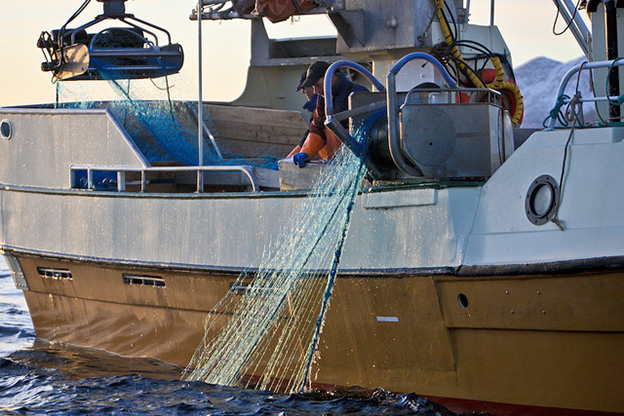We won’t be fishing in the Arctic any time soon – and that’s a good thing

A new agreement signed by five countries has temporarily banned industrial fishing in the Arctic.
Nancy Doubleday is the Hope Chair in Peace and Health at McMaster University. She also chairs the Cold Region Environments Commission of the International Geographical Union.
Last Thursday, five Arctic nations (USA, Canada, Russia, Greenland-Denmark and Norway) signed an accord to prohibit commercial fleets from conducting industrial fishing in the Central Arctic.
This action demonstrates that social learning in complex systems is not only possible, but that it can find political will and express itself.
It also reaffirms visions of cooperation articulated by Inuit organizations, scientists and politicians, both nationally and internationally, for many decades.
Driven by conditions offering a relatively easy win (no commercial fleets are operating there now), coupled with past experience of overfishing and fisheries collapses (e.g. Pollock in Alaska, cod in New England and Atlantic Canada), and the shifting of fish stocks in relation to climate (noted by Norway), there is incentive to cooperate.
The alignment of scientists, some 2,000 of which signed on to a petition in favour of the ban, with the politically attractive link to assertions of state sovereignty, also provided incentives for this accord.
Notwithstanding specific disputes among parties elsewhere (for example over Ukraine, which caused the signing of the accord to shift from 2014 to 2015), it is likely that the players understand the value of the preemptive prohibition of commercial fleets in the Central Arctic not only as an environmental win, but as an easy diplomatic gain.
Also, the United States has just assumed the leadership of the Arctic Council, a coordinating body of eight Arctic states, and permanent observers from key regional Indigenous peoples’ organizations, (as well as non-Arctic states), and is moving quickly to establish its agenda.
This collaboration in the Arctic is encouraging. Current governmental efforts are moving toward reason and cooperation in a region that is sensitive, both environmentally and politically. Despite increased conflict in the world, progress is being made in the Arctic.
It remains for Canada and her Arctic neighbours to press other fishing nations to adopt this accord, and to use the renewal of Arctic cooperation to address collateral issues. Can the goodwill resulting from this thawing of foreign relations in the Arctic be applied to efforts to reduce the impact of forces driving sea ice loss?
Nancy Doubleday will travel with McMaster alumni to the Arctic this summer as part of the Mac Adventure travel series. If you’re interested in going north (or any other direction) you can learn more about the travel series here.
